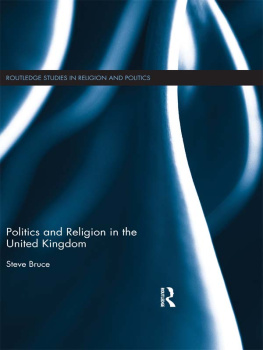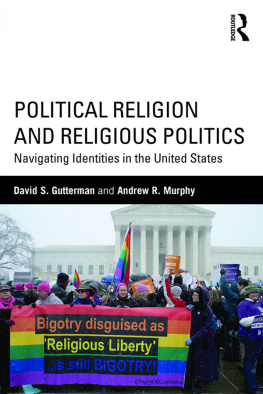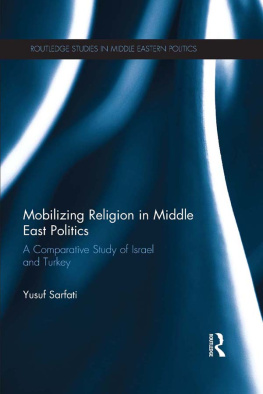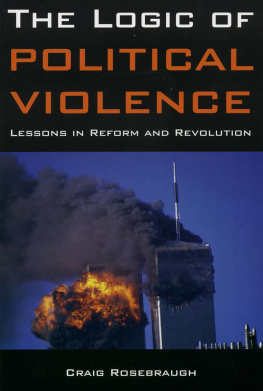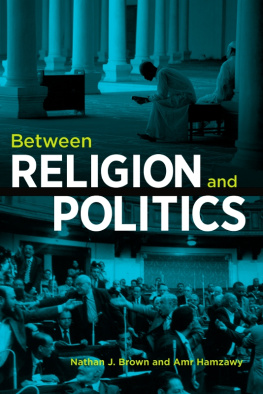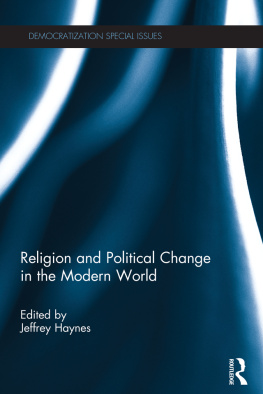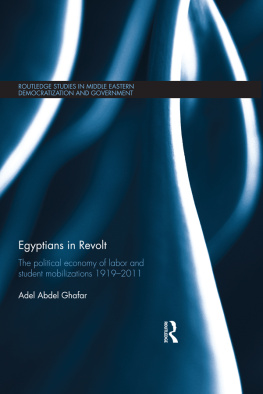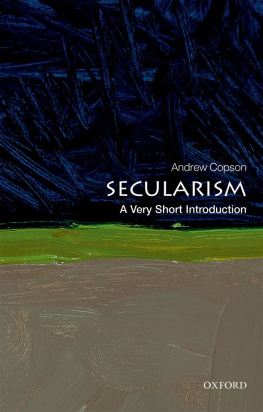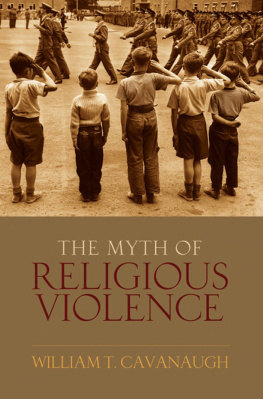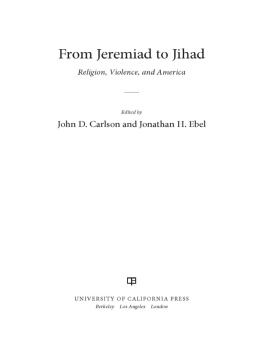
Religion and Political Violence
This book uses the theory of social movements and first-hand interviews to create a new analysis of religiously motivated political violence in the modern world.
Examining the movement to restore Sharia law to a dominant place in the Egyptian government, the movement to make abortion illegal in the United States, and the religious effort to secure territory in Israel, the author contends that religion becomes violent not because of ideology or political context alone, but because of the constantly evolving relationship between them.
The ebb and flow of opportunities for political access ensures that secularization and religion, although polar opposites, depend on each other to define themselves. As a result, while their respective degrees of influence will inevitably undulate over time, both will remain a part of the political process for some time. Thus, a full understanding of both is critical to a meaningful understanding of the political process. Much work has been done to understand secular social movements as part of the political process, and consequentially researchers now know a great deal about the motivations, resources and timing of secular social movements. Considerably less research has been done in the field of religious social movements and this book fills that gap in the literature.
This book will be of great interest to students of political violence, religion, sociology, and Politics and International Relations in general.
Jennifer L. Jefferis is Assistant Professor in the Department of Government, Regent University, USA, and has a PhD in Political Science from Boston University.
Contemporary terrorism studies
Understanding Terrorist Innovation
Technology, tactics and global trends
Adam Dolnik
The Strategy of Terrorism
How it works, why it fails
Peter Neumann and M. L. R. Smith
Female Terrorism and Militancy
Agency, utility and organization
Edited by Cindy D. Ness
Women and Terrorism
Female activity in domestic and international terror groups
Margaret Gonzalez-Perez
The Psychology of Strategic Terrorism
Public and government responses to attack
Ben Sheppard
The De-Radicalization of Jihadists
Transforming armed Islamist movements
Omar Ashour
Targeting Terrorist Financing
International cooperation and new regimes
Arabinda Acharya
Managing Terrorism and Insurgency
Regeneration, recruitment and attrition
Cameron I. Crouch
Religion and Political Violence
Sacred protest in the modern world
Jennifer L. Jefferis
First published 2010
by Routledge
2 Park Square, Milton Park, Abingdon, Oxon OX14 4RN
Simultaneously published in the USA and Canada
by Routledge
270 Madison Ave, New York, NY 10016
Routledge is an imprint of the Taylor & Francis Group, an informa business
This edition published in the Taylor & Francis e-Library, 2009.
To purchase your own copy of this or any of Taylor & Francis or Routledges collection of thousands of eBooks please go to www.eBookstore.tandf.co.uk.
2010 Jennifer L. Jefferis
All rights reserved. No part of this book may be reprinted or reproduced or utilized in any form or by any electronic, mechanical, or other means, now known or hereafter invented, including photocopying and recording, or in any information storage or retrieval system, without permission in writing from the publishers.
British Library Cataloguing in Publication Data
A catalogue record for this book is available from the British Library
Library of Congress Cataloging in Publication Data
Jefferis, Jennifer L.
Religion and political violence: sacred protest in the modern world/
Jennifer L. Jefferis.
p. cm.
Includes bibliographical references (p.).
1. Religion and politics. 2. ViolenceReligious aspects. I. Title.
BL65.P7J44 2009
322.1dc22
2009014381
ISBN 0-203-86918-4 Master e-book ISBN
ISBN10: 0-415-55038-6 (hbk)
ISBN10: 0-203-86918-4 (ebk)
ISBN13: 978-0-415-55038-3 (hbk)
ISBN13: 978-0-203-86918-5 (ebk)
eISBN: 978-0-2038691-8-5
To Adam, for always having faith.
Acknowledgments
When I first explained the concept of this book to a colleague, he rubbed his hands and gleefully exclaimed, Wow, by the time youre done, everyone you write about will be mad at you! Youll make the religious mad for chronically depicting the advance of secularization and the secularists mad for rationally explaining the rise of the religious violence. How can I help? In truth, this book could not have been written were it not for the cooperative efforts of people from every sector Ive written about. Far from expressing displeasure, members of the religious organizations I wrote about welcomed my efforts to better understand their perspective, and countless secularists have devoted time and energy to perfecting this manuscript. I am especially grateful to Ibrahim Hudaiby and other members of the Muslim Brethren for welcoming all my questions and helping me to get even the smallest ones answered. I appreciate Donald Spitz for granting me access to the extensive writings of the Army of God, and to the anti-abortion movement supporters who took the time to talk with me about their cause. I am thankful for the influence Cathie Jo Martin, Emad Shahin and Misagh Parsa had on the early versions of this project. I am indebted to Jessica Medhurst for the hours she spent solving my computer crises. And, of course, I am most grateful of all to my husband for seeing where this could go before I did, and refusing to let me quit.
Introduction
Those who say religion has nothing to do with politics do not know what religion is.
(Mahatma Gandhi)
If a seer is to be judged by the accuracy of his or her prophesy, it may be time to blot Marx, Freud and Weber from the pages of the social scientists prophetic honor roll. At the turn of the twentieth century, these men, among others, heralded the imminence of secularism and, by extension, the demise of religion. Yet the turn of the twenty-first century has seen not the decline of religion, but rather its promotion to world-news center stage. While in the 1980s few, if any, international-terrorist organizations alluded to religion when explaining their political motivations, the 1990s saw the emergence of religiously motivated political violence all over the globe. One-third of the international terrorists groups listed in the St. Andrews Chronology of International Terrorism were religious in 1994; in 1995 in was 46 percent, and by 1998 more than half were religious. And this only alludes to the religious organizations promoting violent action; peaceful religion has flourished as well. In the United States, the 1980s and 1990s gave birth to the Moral Majority, the Christian Coalition and the megachurch. The religious-settlers movement in Israel has demonstrated remarkable staying power, and one need only to walk down the streets of Cairo to observe the re-emergence of religious fervor evidenced by men in long white galabeyyas and women in brightly colored headscarves.
Why, if secularization is as pervasive as sociologists predicted it would be, are we seeing a rise in religious movements at the end of the twentieth century? Further, how can we explain the wholly different methods of opposition adopted by different sectors of the same movement? Were the giants of the twentieth century wrong? Has secularization been halted in its steps?


